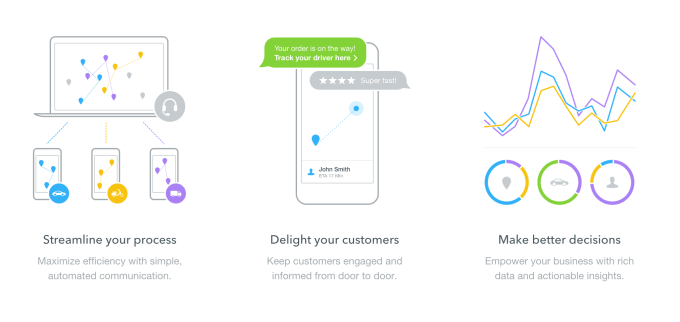 Between ride-hailing apps, food delivery services, and the random niche services for getting things like massages on-demand, smartphones users in big cities are starting to expect seemingly anything and everything with the tap of a button.
Between ride-hailing apps, food delivery services, and the random niche services for getting things like massages on-demand, smartphones users in big cities are starting to expect seemingly anything and everything with the tap of a button.
The first few years of the “Uber for X” trend involved a lot of rebuilding the wheel for startups willing to experiment with the concept. Now, it seems like there’s another app delivering cookies or weed launching each week.
A large factor contributing to the rise of these on-demand and delivery services is the emergence of a handful of startups offering backend infrastructure suited to the task. One such company is Onfleet, who provides a white-label backend specifically built for the task of coordinating deliveries with a fleet of couriers out in the field.
Onfleet facilitates communication between “home base” and couriers, letting drivers know when it’s time to pick up another batch of cookies set for delivery. It also enables communication with recipients, providing the interface for tracking a courier with your delivery, estimating the time until delivery, and letting users contact the courier to handle odd pick-up situations.
Onfleet co-founder and CEO Khaled Naim says the company primarily serves startups who want to offer delivery but for whom the skill isn’t a “core competency.” He uses customers Meadow and Canary as examples: Those teams can focus on working with dispensaries to provide better products and faster deliveries — the app that routes drivers to their delivery destination isn’t the biggest factor to keeping their customers happy.
Of course, the fact that customers are relying on Onfleet to provide their core services makes them less open about that fact, which has kept the startup and its competitors (like Trackin or Dispatch) out of the limelight thus far. In fact, Onfleet isn’t able to discuss its largest customer publicly — though it can say it has facilitated more than 100,000 deliveries this year.
Onfleet recently raised $2 million from CrunchFund, Winklevoss Capital, the Stanford-StartX, and several individual investors, which the team will use to expand its purview beyond startups just raising their seed round or Series A.
Naim says that Onfleet is looking both up- and down-market as it looks to expand. On one front, the team is working to bring on enterprise clients (think Macy’s or Bloomingdale’s) who either already have fleet but outdated field management systems or whose businesses lend themselves to a delivery option. On the other end, Naim told TechCrunch that “the longer term vision is to go to any merchant and make it easy for them to have deliveries via [an Onfleet-provisioned] driver network.”
In addition to addressing new markets, Naim says the team is working on several major core features that should roll out over the next several months, including driver behavior analytics, driver background checks through services like Checkr, and route optimization.